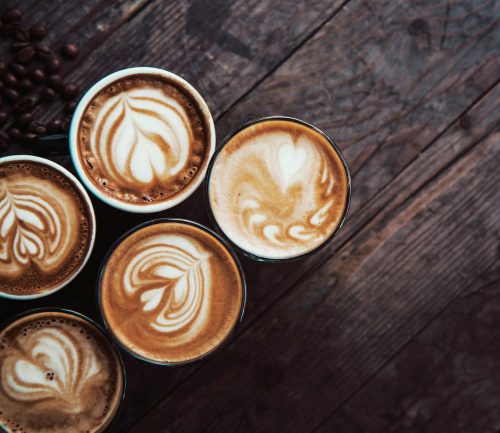
We often hear that coffee and other caffeinated drinks will dehydrate us. What does the evidence say?
Did you know that water makes up over 60 per cent of your weight? All that water serves an important purpose. Water helps regulate body temperature; it transports nutrients and waste products; and allows many metabolic reactions to occur. You can see why there’s a big focus on staying well hydrated.
If your water intake (from foods and beverages) matches water losses (mostly from urine), then you have reached the happy place of fluid balance.
A diuretic is something that can upset this delicate balance by causing more water to be lost. Caffeine has long been seen as a diuretic, but more research has found its effect on fluid balance is, at best, minor.
A kernel of truth
There’s some truth to claims that caffeine acts as a diuretic, but the key is the amount you have. Early research did find that caffeine causes water loss, but the amount of caffeine required is over 500 milligrams. That’s equal to four shots of espresso, or five to six cups of instant coffee, or an even greater number of cups of tea.
In a recent study investigating how coffee can affect hydration, 50 regular coffee drinkers underwent a variety of tests to measure their hydration over three days. The hydration tests were repeated after they swapped their coffee for water for three days. Their food, fluid and exercise habits stayed constant.
The research team found that, after all that drinking and testing, the effect of caffeine or plain water on any measure of hydration was the same. The participants were regular coffee drinkers, so the result may have been different in people who consume little caffeine. But if someone drinks coffee rarely, then any effect on hydration will ultimately be fleeting.
Drinks all round?
With much interest in how different drinks can affect fluid balance, scientists have now developed a ‘beverage hydration index’. The index ranks drinks by how much fluid the body retains or loses when compared against water over four hours. Using this beverage hydration index, there is little to separate coffee and plain water. And the same also goes for cola, diet cola, tea, iced tea, orange juice and even sports drinks – they all can keep a person hydrated just as well as water.
Making sense of it all
Before you switch your drinking habits from ‘eight glasses of water’ to ‘eight cups of coffee’ a day to meet your fluid needs, a word of caution. Too much caffeine is not good for your health. Poor sleep patterns and insomnia, agitation, anxiety and even heart palpitations are well-described effects of too much caffeine. So, keeping your daily caffeine habit below roughly 400 milligrams (about 4–5 cups of instant coffee) is the best goal.
For regular drinkers of coffee and tea, the good news is that there is little need to worry about them dehydrating you. Another bit of good news is that coffee and tea have many health benefits linked to them, including decreased risk of some cancers, heart disease and even type 2 diabetes. So, keep enjoying your daily cuppa of choice!
Article sources and references
- Killer SC et al. 2014. No evidence of dehydration with moderate daily coffee intake: A counterbalanced cross-over study in a free-living population. PLOS ONE 9:e84154https://www.ncbi.nlm.nih.gov/pmc/articles/PMC3886980/
- Maughan RJ et al. 2016. A randomized trial to assess the potential of different beverages to affect hydration status: Development of a beverage hydration index. American Journal of Clinical Nutrition 103:717-23https://www.ncbi.nlm.nih.gov/pubmed/26702122
- Wikoff D et al. 2017. Systematic review of the potential adverse effects of caffeine consumption in healthy adults, pregnant women, adolescents, and children. Food and Chemical Toxicology 109:585-648https://www.sciencedirect.com/science/article/pii/S0278691517301709
- Zhang Y et al. 2015. Caffeine and diuresis during rest and exercise: A meta-analysis. Journal of Science and Medicine in Sport 18:569-74https://www.ncbi.nlm.nih.gov/pubmed/25154702
www.healthyfood.com










